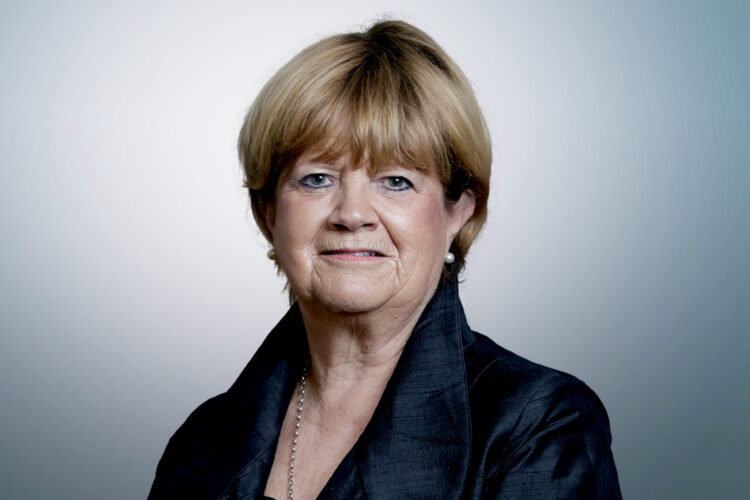By Ben Kerrigan-
Officials at the covid inquiry has requested all its staff and visitors to take a lateral flow test before attending the hearing centre.
The inquiry’s “Covid policy” states that anyone attending the hearings daily should test for the virus at the beginning of each week, while those coming on individual days should test “in advance of attending”.
Those who test positive have been asked to stay away.
A five-page Covid policy document published by the inquiry stated: “Though the UK Government no longer requires people to self-isolate if they test positive for Covid-19, we are asking those who test positive to stay away from the hearings.”
The inquiry has said that while lateral flow tests are not mandatory, it will not be reimbursing visitors – including core participants and bereaved families – who do take the tests as asked.
Staff at the centre, which include legal teams, contractors and security staff, will be provided with tests.
Gareth Johnson, the Conservative MP for Dartford, said the testing demand was an “unnecessary barrier” for participants.
“This request from the inquiry seems like overkill to me and runs the very real risk of preventing some people from attending the inquiry if they can’t obtain a test or can’t afford one,” he said. “It’s an unnecessary barrier.”
The inquiry has said the purpose of its Covid policy, which also includes the provision of free face coverings to visitors and 16 ventilation units in the hearing centre, is to “reduce the risk of Covid transmission while the inquiry holds its hearings”.
The Covid Inquiry will begin its public hearings today with a film featuring testimonies from bereaved families. But those families will not be allowed to participate in the hearings
There will also be opening statements from lawyers for ‘core participants’, with the first expert evidence beginning tomorrow.
The inquiry will spend the next six weeks examining the UK’s resilience and preparedness before looking at factors such as government decision-making, vaccine rollout and the care sector.
A document published on the inquiry’s website last night urges ‘all staff and visitors’ to take a lateral flow test before attending its sessions. People have also been told they can wear masks if they feel ‘more comfortable’ doing so (pictured: Baroness Heather Hallet, chair of the Covid Inquiry)
A document published on the inquiry’s website last night urges ‘all staff and visitors’ to take a lateral flow test before attending its sessions. People have also been told they can wear masks if they feel ‘more comfortable’ doing so (pictured: Baroness Heather Hallet, chair of the Covid Inquiry)
Tory MP Marco Longhi (pictured) said: ‘Independent Sage didn’t, and still don’t, have any mandate. Everybody is an expert these days, and it’s obvious there are polarised views across the spectrum of opinions’
Tory MP Marco Longhi (pictured) said: ‘Independent Sage didn’t, and still don’t, have any mandate. Everybody is an expert these days, and it’s obvious there are polarised views across the spectrum of opinions.
The probe is not expected to conclude until 2026.
The UK’s will be the first to reach public hearings with evidence from witnesses.
But there are concerns members of the Independent SAGE group of scientists, who advocated for harsher lockdowns, could be called to give evidence.
Tory MP Marco Longhi said: ‘Independent Sage didn’t, and still don’t, have any mandate. Everybody is an expert these days, and it’s obvious there are polarised views across the spectrum of opinions.’
A raft of measures have been introduced to ‘reduce the risk of Covid-19 transmission’ at the inquiry’s first module at Dorland House in Paddington, west London, even though all legal restrictions in England ended in February 2022.
The inquiry is expected to examine policies, decision-making processes, and the implementation of public health measures, shedding light on any shortcomings or successes. Understanding what went wrong and what went right is crucial for improving preparedness and response in future public health emergencies.
It is also hoped that the COVID inquiry will help hold individuals and institutions accountable for their actions or inactions during the crisis. .
The exclusion of bereaved families from the COVID inquiry has raised a few eye brows, primarily because of the immense loss they have suffered, and their unique perspective on the impact of the pandemic. Many believe their stories can provide valuable insights into the human toll of the crisis and the effectiveness of government policies in safeguarding public health and minimizing harm.
One doctor told the Eye Of Media.Com: ‘The inquiry really should have heard from bereaved families helps them voice their concerns, and seek answers to their questions about the circumstances surrounding their loved ones’ deaths. Inclusion in the inquiry process can contribute to the healing process for these families, allowing them to feel heard and acknowledged.
”Their inclusion also helps promote transparency in the inquiry process, demonstrating a commitment to hearing diverse perspectives and ensures that those most affected by the pandemic have a voice in shaping the narrative.
”Bereaved families can provide unique insights into potential systemic issues that may have contributed to the scale of the crisis. Their experiences can highlight gaps in healthcare systems, social support networks, and emergency response mechanisms. Such information is crucial for identifying areas that require improvement and implementing necessary reforms”.




